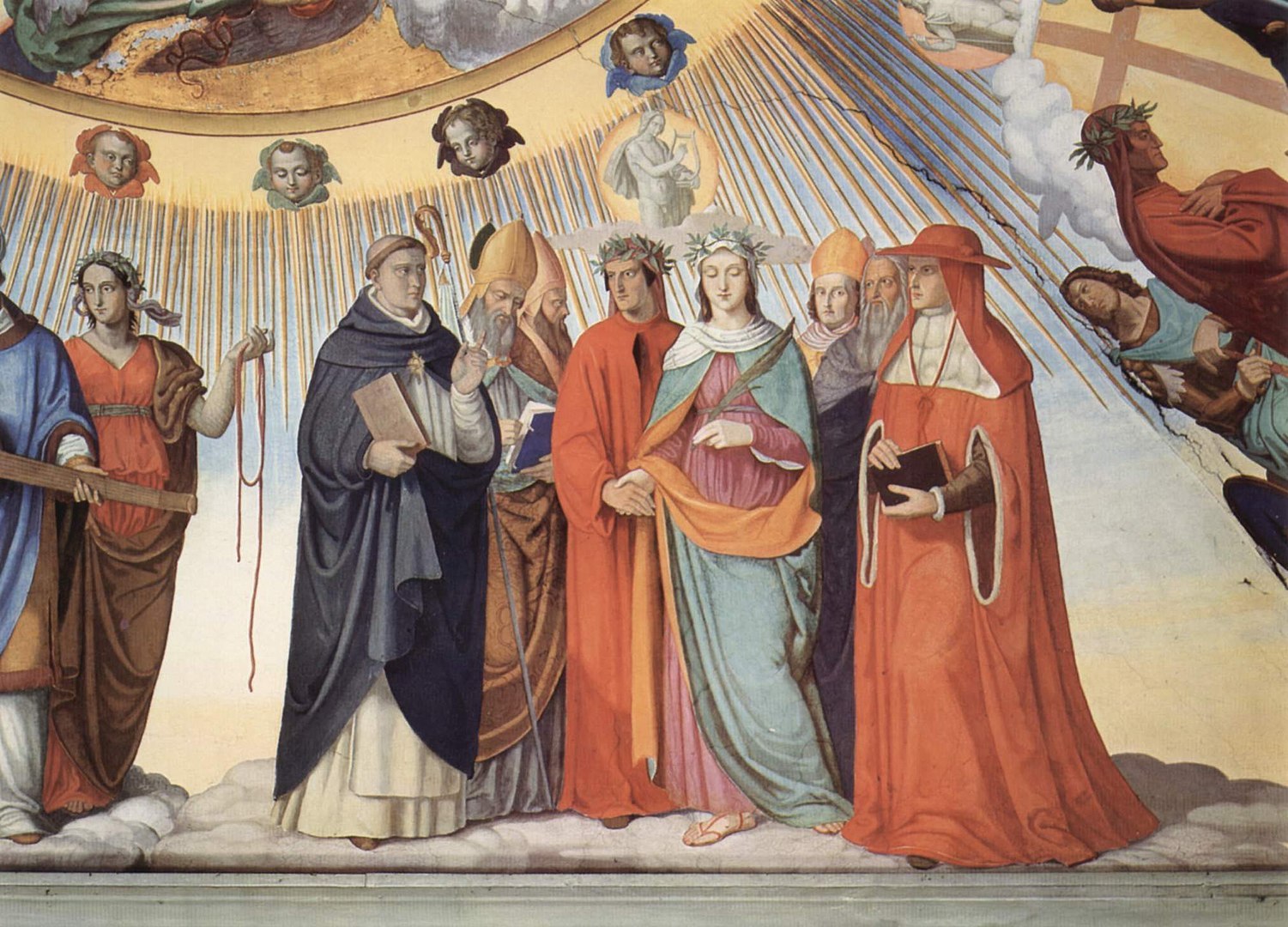
“Dante reveals to students the essence not only of their relationship to their teachers, and ours to them, but also of our combined relationship to the reality (natural, human, and divine) studied during their liberal education. The end of a liberal education is an experience of the Love that created both the subjects of a liberal education and the human persons in need of that education, and Dante achieves that purpose. Through truth and virtue, he becomes wise, and his wisdom sets him free.”
“Without ever addressing the point explicitly with students, I can let Dante reveal to them the essence not only of their relationship to their teachers, and ours to them, but also of our combined relationship to the reality (natural, human, and divine) studied during their liberal education. Dante certainly imagined liberal education as constituted by the trivium and the quadrivium—the arts of word (grammar, logic, and rhetoric) and those of number (arithmetic, geometry, astronomy, and music)—as propaedeutic to the study of philosophy and theology, and he imagined poetry, in a work he wrote on the Italian language, De vulgari eloquentia, to be the liberal art combining the consummate art of language and the consummate art of number: ‘Poetry [is] a verbal invention composed according to the rules of rhetoric and music.’ For our purposes, I will hazard a tautology and say that a liberal education liberates. That is, it frees us from error into understanding of the most significant question: How should we live?”
[. . .]
“Virgil’s guidance has been necessary for Dante, but it is not sufficient. His guidance has profound limitations that make it both helpful, given where Dante was, but needing to be surpassed, given where he is going. Imperfect pedagogy, thank goodness, can still save, just not by itself. Students need more than one teacher because of the limits of the master.”
[. . .]
“The relationship between Dante and Beatrice is a suggestive representation of the tendency in pedagogic relationships to confuse the teacher for the thing taught, and to allow one’s shared love of the material to be lost in the distracting presence of the one revealing the material. Guru-ism is a perversion of a truly saving pedagogy—a distortion of a legitimate attraction. Beauty is a salvific distraction, provided the beautiful one reminds us of that which truly saves.” — Scott F. Crider, Public Discourse, August 21, 2021




